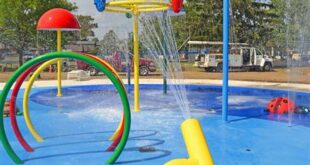Are you looking for a reputable and effective rehab facility?
Editor’s Notes: “willow springs rehab brick” Understanding addiction’s complexities, rehab progression, and leveraging resources can boost recovery chances.
Through thorough analysis and thoughtful evaluations, we’ve crafted this comprehensive guide on “willow springs rehab brick” to empower you with the knowledge and confidence to make informed decisions about your recovery journey.
Key Differences or Key Takeaways
Transition to main article topics
willow springs rehab brick
Understanding the multifaceted nature of “willow springs rehab brick” requires exploring its fundamental aspects.
- Addiction Treatment
- Recovery Programs
- Holistic Therapies
- Medication-Assisted Treatment
- Individualized Care Plans
- Group Therapy
- Family Involvement
- Aftercare Planning
- Sober Living Options
- Alumni Support
- Trauma-Informed Care
- Evidence-Based Practices
These aspects, interconnected and interdependent, contribute to the effectiveness of “willow springs rehab brick”. Addiction treatment encompasses a range of therapies, from holistic approaches to medication-assisted treatment, tailored to individual needs through personalized care plans. Group therapy fosters a supportive environment, while family involvement and aftercare planning promote long-term recovery. Sober living options, alumni support, and trauma-informed care address the multifaceted challenges of addiction, and evidence-based practices ensure the efficacy of treatment modalities.
Addiction Treatment
Addiction Treatment lies at the core of “willow springs rehab brick”, encompassing a spectrum of therapies tailored to individual needs.
-
Cognitive Behavioral Therapy (CBT)
CBT delves into the interplay between thoughts, emotions, and behaviors, empowering individuals to recognize and alter maladaptive patterns that contribute to addiction.
-
Motivational Enhancement Therapy (MET)
MET fosters intrinsic motivation for change, guiding individuals to explore their reasons for seeking recovery and building their confidence in their ability to succeed.
-
Contingency Management (CM)
CM utilizes positive reinforcement to encourage abstinence and adherence to treatment, incentivizing individuals with rewards for achieving specific goals.
-
Medication-Assisted Treatment (MAT)
MAT combines behavioral therapy with medications like methadone or buprenorphine to reduce cravings, prevent relapse, and restore brain function.
These facets of Addiction Treatment, integrated within “willow springs rehab brick”, provide a comprehensive approach to recovery, addressing the psychological, behavioral, and physiological aspects of addiction.
Recovery Programs
Recovery Programs, a cornerstone of “willow springs rehab brick”, offer structured and supportive environments that facilitate sustained recovery from addiction.
-
12-Step Programs:
Rooted in the principles of Alcoholics Anonymous and Narcotics Anonymous, these programs emphasize peer support, accountability, and spiritual growth.
-
Therapeutic Communities:
These long-term, residential programs provide a highly structured and supportive environment where individuals engage in daily therapy, work, and community living.
-
Outpatient Treatment:
Outpatient programs offer flexibility and convenience, allowing individuals to continue with their daily responsibilities while receiving treatment.
-
Sober Living Houses:
Sober living houses provide a safe and supportive living environment for individuals transitioning from inpatient treatment or seeking ongoing support.
Recovery Programs within “willow springs rehab brick” cater to diverse needs and preferences, providing a comprehensive continuum of care that promotes lasting recovery.
Holistic Therapies
Holistic Therapies, within “willow springs rehab brick”, encompass a range of mind-body practices that promote overall well-being and support recovery from addiction.
-
Yoga and Meditation:
Yoga and meditation practices cultivate mindfulness, reduce stress, and enhance self-awareness, fostering emotional regulation and relapse prevention.
-
Art and Music Therapy:
Creative expression through art and music provides a safe and non-verbal outlet for processing emotions, resolving trauma, and promoting self-discovery.
-
Equine-Assisted Therapy:
Interactions with horses facilitate emotional growth, improve communication skills, and promote self-esteem, fostering a sense of purpose and connection.
-
Nutritional Counseling:
Nutritional guidance promotes healthy eating habits, reducing cravings and improving overall physical and mental well-being, supporting the body’s natural healing processes.
Holistic Therapies in “willow springs rehab brick” complement traditional treatment approaches, providing a comprehensive and integrative approach to recovery that addresses the whole person, fostering lasting healing and transformation.
Medication-Assisted Treatment
Medication-Assisted Treatment (MAT) plays a crucial role in “willow springs rehab brick”, offering a safe and effective approach to treating addiction by combining behavioral therapy with medications like methadone or buprenorphine.
MAT addresses the physiological and psychological aspects of addiction, reducing cravings, preventing relapse, and restoring brain function. It provides a stable foundation for individuals to engage in therapy and other recovery activities, increasing their chances of long-term success.
Real-life examples demonstrate the effectiveness of MAT within “willow springs rehab brick”. Studies have shown that individuals receiving MAT are more likely to stay in treatment, achieve abstinence, and reduce criminal activity compared to those receiving traditional treatment alone.
The integration of MAT into “willow springs rehab brick” highlights its commitment to providing comprehensive and evidence-based care. By embracing MAT, “willow springs rehab brick” recognizes the importance of addressing the biological underpinnings of addiction, increasing the likelihood of successful recovery outcomes.
Individualized Care Plans
At the heart of “willow springs rehab brick” lies the concept of Individualized Care Plans (ICPs), meticulously tailored to each individual’s unique needs and circumstances. ICPs are not mere blueprints; they are dynamic roadmaps that guide the recovery journey, ensuring that every step taken is deliberate and purposeful.
ICPs acknowledge that addiction manifests in myriad forms, influenced by personal history, substance use patterns, and underlying mental health conditions. By customizing treatment plans, “willow springs rehab brick” empowers individuals to actively participate in their recovery, fostering a sense of ownership and accountability.
Real-life examples attest to the transformative power of ICPs. Take Sarah, a recovering addict who struggled with co-occurring depression. Her ICP incorporated cognitive-behavioral therapy to address her negative thought patterns and medication to manage her depression. This holistic approach, tailored to her specific needs, enabled Sarah to break the cycle of addiction and embark on a path of sustained recovery.
The practical significance of ICPs in “willow springs rehab brick” cannot be overstated. They optimize treatment outcomes by ensuring that each individual receives the most appropriate interventions, maximizing their chances of long-term success. ICPs are not static documents; they are continuously reviewed and revised as individuals progress, reflecting the dynamic nature of recovery and the commitment to providing ongoing support.
Group Therapy
Within “willow springs rehab brick”, Group Therapy emerges as a cornerstone, fostering a sense of community and shared purpose among individuals navigating the challenges of addiction recovery. Group Therapy sessions provide a platform for participants to connect with peers who understand their struggles, offering a powerful source of support and encouragement.
The group dynamic cultivates a safe and non-judgmental space where individuals can openly share their experiences, challenges, and triumphs. This process fosters empathy, reduces isolation, and promotes self-awareness. Through facilitated discussions and activities, participants learn valuable coping mechanisms, develop problem-solving skills, and challenge negative thought patterns that contribute to addiction.
Real-life examples illustrate the transformative impact of Group Therapy within “willow springs rehab brick”. In one instance, a participant named John found solace and strength in sharing his struggles with addiction and relapse within the group. The support and encouragement he received from his peers motivated him to persevere through challenging times and ultimately achieve long-term recovery.
The practical significance of Group Therapy in “willow springs rehab brick” lies in its ability to enhance individual outcomes by fostering a sense of belonging, promoting positive behavioral change, and reducing the risk of relapse. It complements other therapeutic interventions, providing a unique and powerful platform for individuals to connect, learn, and grow together on their recovery journey.
Family Involvement
Family Involvement plays a pivotal role within “willow springs rehab brick”, recognizing the profound impact that family members can have on an individual’s recovery journey. By actively engaging families in the treatment process, “willow springs rehab brick” fosters a holistic approach that supports lasting success.
-
Education and Support:
Families are provided with education about addiction, its effects, and the recovery process. This knowledge empowers them to better understand their loved one’s struggles and provide informed support.
-
Communication and Boundaries:
Therapists facilitate open and honest communication between family members and the individual in recovery. They help establish healthy boundaries and improve communication patterns to promote a supportive and nurturing environment.
-
Family Therapy:
Family therapy sessions offer a dedicated space for families to address underlying issues, heal from past hurts, and develop healthier coping mechanisms. This process strengthens family bonds and creates a more supportive home environment.
-
Relapse Prevention:
Families play a crucial role in relapse prevention by providing a safety net and early intervention. They are trained to recognize warning signs and offer support during challenging times, reducing the risk of relapse and promoting long-term recovery.
Through Family Involvement, “willow springs rehab brick” acknowledges the vital role that families play in the recovery process. By empowering families with knowledge, facilitating communication, and providing therapeutic support, “willow springs rehab brick” creates a comprehensive and supportive environment that increases the likelihood of sustained recovery.
Aftercare Planning
Aftercare Planning is an integral component of “willow springs rehab brick”, recognizing the crucial role it plays in sustaining recovery and preventing relapse. It involves developing a comprehensive plan that outlines the necessary steps and resources to support individuals after they complete their inpatient or outpatient treatment programs.
-
Relapse Prevention:
Aftercare plans prioritize relapse prevention by identifying potential triggers, developing coping mechanisms, and establishing a support system. They equip individuals with the tools and strategies needed to navigate challenging situations and maintain sobriety.
-
Continued Support:
Aftercare plans provide ongoing support through regular therapy sessions, support groups, and peer mentoring programs. These connections offer a sense of community and accountability, reducing the risk of isolation and encouraging sustained recovery.
-
Vocational Rehabilitation:
For individuals seeking to re-enter the workforce, aftercare plans may include vocational rehabilitation services. These services provide job training, placement assistance, and support to facilitate a successful return to employment.
-
Education and Life Skills:
Aftercare plans can also address educational needs and life skills development. They may offer assistance with obtaining a high school diploma or GED, acquiring job skills, or managing finances, promoting overall well-being and self-sufficiency.
By investing in Aftercare Planning, “willow springs rehab brick” demonstrates its commitment to long-term recovery. These plans empower individuals with the knowledge, resources, and support they need to maintain their sobriety, reintegrate into society, and achieve their full potential.
Sober Living Options
Sober Living Options (SLOs) are an integral part of the continuum of care offered by “willow springs rehab brick”, providing a bridge between inpatient treatment and independent living. SLOs offer a safe, structured, and supportive environment for individuals transitioning from addiction treatment to rebuild their lives in recovery.
Residing in an SLO provides several key benefits, including:
- Continued Support: SLOs provide ongoing support and guidance from experienced staff members who are available 24/7 to assist residents with challenges and celebrate their successes.
- Structured Environment: SLOs establish clear rules and expectations, promoting accountability and routine, which are essential for maintaining sobriety.
- Peer Support: Residents in SLOs live with others who are also in recovery, creating a sense of community and shared purpose.
- Life Skills Development: SLOs often offer life skills training, such as budgeting, cooking, and job search assistance, to help residents prepare for independent living.
Real-life examples demonstrate the transformative impact of SLOs. John, a recovering addict, initially struggled to maintain his sobriety after leaving inpatient treatment. However, after moving into an SLO, he found the structure and support he needed to rebuild his life. With the guidance of staff and the camaraderie of his peers, John developed healthy coping mechanisms, secured employment, and reconnected with his family.
The practical significance of SLOs within “willow springs rehab brick” lies in their ability to bridge the gap between treatment and independent living, reducing the risk of relapse and promoting long-term recovery. By providing a safe, supportive, and structured environment, SLOs empower individuals to develop the skills and confidence needed to navigate the challenges of early recovery and build a fulfilling life in sobriety.
Alumni Support
Alumni Support plays a crucial role within “willow springs rehab brick”, fostering a sense of community and providing ongoing support for individuals in recovery. By connecting former patients with the resources and encouragement they need, “willow springs rehab brick” promotes long-term success and sustained sobriety.
-
Mentorship and Sponsorship:
Alumni mentors and sponsors provide invaluable guidance and support to individuals in early recovery. They share their experiences, offer encouragement, and serve as role models, demonstrating that sustained recovery is possible.
-
Social Events and Activities:
Alumni events and activities create opportunities for individuals to connect with others in recovery, build friendships, and engage in social activities in a safe and supportive environment.
-
Community Involvement:
Alumni are encouraged to participate in community outreach and volunteer activities, giving back to their communities and demonstrating the positive impact of recovery.
-
Continued Education and Training:
“willow springs rehab brick” offers alumni access to continued education and training opportunities, supporting their personal and professional growth and empowering them to become advocates for recovery.
By investing in Alumni Support, “willow springs rehab brick” recognizes the importance of long-term recovery and the power of community. Through mentorship, social events, community involvement, and continued education, “willow springs rehab brick” empowers individuals to maintain their sobriety, achieve their goals, and make a positive contribution to society.
Trauma-Informed Care
Trauma-Informed Care (TIC) is an essential pillar of “willow springs rehab brick”, recognizing the profound impact that trauma can have on individuals struggling with addiction. TIC is a holistic approach that emphasizes safety, empowerment, and collaboration, creating a supportive environment for healing and recovery.
-
Understanding Trauma’s Impact:
TIC acknowledges that trauma can manifest in various forms, including physical, emotional, and psychological abuse, neglect, and exposure to violence. By understanding the ways trauma affects individuals, “willow springs rehab brick” can provide tailored interventions that address the underlying causes of addiction.
-
Creating a Safe Space:
TIC prioritizes the creation of a physically and emotionally safe environment where individuals feel respected, believed, and free from judgment. “willow springs rehab brick” implements measures such as trauma-sensitive language, private spaces, and staff training to foster a sense of trust and security.
-
Empowering Individuals:
TIC empowers individuals by actively involving them in their treatment planning and decision-making. “willow springs rehab brick” encourages self-advocacy, providing opportunities for individuals to share their experiences, set goals, and develop coping mechanisms that promote their well-being.
-
Collaboration and Partnerships:
TIC recognizes the importance of collaboration among healthcare professionals, support staff, and community organizations. “willow springs rehab brick” fosters partnerships to ensure a comprehensive and coordinated approach to trauma-informed care, addressing the multifaceted needs of individuals in recovery.
The integration of TIC into “willow springs rehab brick” underscores its commitment to providing trauma-sensitive and empowering care. By understanding the impact of trauma, creating a safe space, empowering individuals, and fostering collaboration, “willow springs rehab brick” supports individuals in overcoming the challenges of addiction and building a fulfilling life in recovery.
Evidence-Based Practices
“willow springs rehab brick” embraces Evidence-Based Practices (EBPs), a cornerstone of effective addiction treatment. EBPs are interventions and approaches that have been scientifically proven to be effective in treating addiction and promoting recovery.
-
Cognitive Behavioral Therapy (CBT):
CBT helps individuals identify and change negative thought patterns and behaviors that contribute to addiction. Studies have shown that CBT is effective in reducing substance use, improving coping skills, and preventing relapse.
-
Motivational Enhancement Therapy (MET):
MET helps individuals explore their ambivalence about change and build motivation for recovery. Research has demonstrated that MET is effective in increasing treatment engagement, reducing substance use, and improving overall outcomes.
-
Contingency Management (CM):
CM uses positive reinforcement, such as vouchers or small rewards, to encourage abstinence and adherence to treatment. CM has been shown to be effective in reducing substance use and promoting treatment retention.
-
Medication-Assisted Treatment (MAT):
MAT combines behavioral therapy with medications like methadone or buprenorphine to reduce cravings, prevent relapse, and restore brain function. Numerous studies have demonstrated the effectiveness of MAT in improving treatment outcomes and reducing overdose risk.
By incorporating EBPs into its treatment programs, “willow springs rehab brick” ensures that individuals receive the most effective and up-to-date interventions. These practices have been rigorously tested and proven to produce positive outcomes, increasing the likelihood of long-term recovery and sustained sobriety.
Frequently Asked Questions about “willow springs rehab brick”
This section provides answers to commonly asked questions about “willow springs rehab brick”, offering concise and informative responses to clarify any uncertainties or misconceptions.
Question 1: What is the philosophy behind “willow springs rehab brick”?
“willow springs rehab brick” adopts a comprehensive and individualized approach to addiction treatment, recognizing the unique needs of each individual. Our philosophy emphasizes evidence-based practices, trauma-informed care, and a commitment to providing a safe and supportive environment for recovery.
Question 2: What types of therapies are offered at “willow springs rehab brick”?
“willow springs rehab brick” utilizes a range of evidence-based therapies, including Cognitive Behavioral Therapy (CBT), Motivational Enhancement Therapy (MET), Contingency Management (CM), and Medication-Assisted Treatment (MAT). Our treatment plans are tailored to meet the specific needs of each individual, ensuring a personalized and effective approach to recovery.
Question 3: How does “willow springs rehab brick” address the underlying causes of addiction?
Recognizing the multifaceted nature of addiction, “willow springs rehab brick” employs a holistic approach that addresses both the physical and psychological aspects of the condition. Our trauma-informed care model acknowledges the potential impact of past experiences on addiction and provides a safe and supportive environment for individuals to heal and grow.
Question 4: What is the role of family involvement in “willow springs rehab brick”?
“willow springs rehab brick” actively involves families in the recovery process, recognizing their crucial role in supporting individuals. We offer family education, communication facilitation, and family therapy sessions to strengthen family bonds, improve communication patterns, and create a supportive home environment that promotes long-term recovery.
Question 5: How does “willow springs rehab brick” ensure the effectiveness of its treatment programs?
“willow springs rehab brick” employs a rigorous approach to monitoring and evaluating the effectiveness of its treatment programs. We utilize evidence-based practices, track client progress, and conduct regular outcome assessments to ensure that our interventions are achieving the desired results and that individuals are making meaningful progress in their recovery journey.
Question 6: What are the benefits of choosing “willow springs rehab brick” for addiction treatment?
“willow springs rehab brick” offers a comprehensive and individualized approach to addiction treatment, providing a safe and supportive environment for individuals to heal and grow. Our evidence-based practices, trauma-informed care model, and commitment to family involvement set us apart as a leading provider of addiction treatment services. By choosing “willow springs rehab brick”, individuals can access a range of therapies, expert staff, and a supportive community that is dedicated to their long-term recovery and well-being.
Summary of key takeaways or final thought:
“willow springs rehab brick” is committed to providing accessible, effective, and compassionate addiction treatment services. Our comprehensive approach, evidence-based practices, and dedication to individualized care empower individuals to overcome addiction and reclaim their lives.
Tips by “willow springs rehab brick”
Recognizing addiction as a complex and multifaceted condition, “willow springs rehab brick” offers valuable tips to support individuals on their recovery journey. These tips, grounded in evidence-based practices and clinical expertise, aim to empower individuals to take proactive steps toward lasting recovery.
Tip 1: Seek Professional Help
Addiction is a serious condition that requires professional intervention. Seeking help from a qualified addiction treatment center like “willow springs rehab brick” provides access to a comprehensive range of therapies, medical support, and counseling services tailored to individual needs, increasing the likelihood of successful recovery.
Tip 2: Embrace a Support System
Building a strong support system is crucial for sustained recovery. Surround yourself with family, friends, or support groups who understand your journey and offer encouragement, accountability, and a sense of belonging. Joining peer support groups like Alcoholics Anonymous or Narcotics Anonymous can provide a safe and supportive environment to share experiences and gain insights from others who have successfully navigated recovery.
Tip 3: Practice Self-Care
Prioritizing self-care is essential for overall well-being and recovery. Engage in activities that promote physical, mental, and emotional health, such as regular exercise, healthy eating, adequate sleep, and stress-reducing practices like yoga or meditation. Self-care helps individuals cope with cravings, manage stress, and maintain a positive mindset during recovery.
Tip 4: Develop a Relapse Prevention Plan
To minimize the risk of relapse, create a comprehensive relapse prevention plan that identifies potential triggers, coping mechanisms, and emergency contacts. This plan should be developed in collaboration with a therapist or counselor and should include strategies for managing high-risk situations, seeking support when needed, and maintaining a strong recovery foundation.
Tip 5: Avoid Temptation and High-Risk Situations
Early in recovery, it’s crucial to avoid temptations and high-risk situations that could trigger cravings or lead to relapse. This may involve limiting contact with people or places associated with past substance use, learning to say no to social pressure, and developing healthy alternative activities to replace substance use.
Tip 6: Focus on the Present Moment
Dwelling on the past or worrying about the future can be detrimental to recovery. Practice mindfulness techniques to stay present and focus on the current moment. Gratitude exercises, deep breathing, and meditation can help individuals cultivate a positive mindset and reduce stress, improving overall well-being and resilience.
Tip 7: Celebrate Successes
Acknowledging and celebrating successes, no matter how small, can boost motivation and reinforce positive behaviors during recovery. Take time to reflect on your progress, reward yourself for milestones achieved, and share your accomplishments with your support system. Celebrating successes helps maintain a positive outlook and encourages continued effort toward recovery goals.
Tip 8: Seek Continuous Support
Recovery is an ongoing journey that requires continuous support and effort. Even after completing a treatment program, it’s essential to stay connected to support groups, therapists, or sober living communities. Regularly attending support meetings, engaging in therapy sessions, and maintaining a strong recovery network can provide ongoing guidance, accountability, and encouragement, reducing the risk of relapse and promoting sustained recovery.
Summary of key takeaways or benefits:
By following these tips from “willow springs rehab brick,” individuals can increase their chances of successful recovery from addiction. Remember, recovery is a journey that requires commitment, effort, and support. Embracing these tips can empower individuals to take ownership of their recovery, navigate challenges, and achieve lasting sobriety.
Transition to the article’s conclusion:
“willow springs rehab brick” is dedicated to providing comprehensive and compassionate addiction treatment services, empowering individuals to overcome addiction and reclaim their lives. By incorporating these tips into their recovery journey, individuals can build a strong foundation for lasting sobriety and achieve their full potential.
Conclusion
“willow springs rehab brick” firmly believes in the transformative power of recovery. We recognize addiction as a complex condition, and our comprehensive approach to treatment addresses the physical, psychological, and social aspects of addiction. Through evidence-based practices, trauma-informed care, and a commitment to individualized treatment, we empower individuals to break free from the cycle of addiction and reclaim their lives.
Recovery is a journey that requires courage, resilience, and support. At “willow springs rehab brick”, we are dedicated to providing a safe and nurturing environment where individuals can heal, grow, and rediscover their potential. We encourage anyone struggling with addiction to seek help and embark on the path to recovery. Together, we can break the stigma surrounding addiction and create a society where recovery is celebrated and supported.







